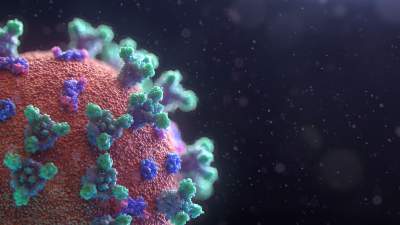The available codes for reporting of cardiology services will have a number of changes in 2017. Over 20 codes have been added for cardiac contractility modulation and counterpulsation ventricular assist systems. Also, new opportunities for reimbursement may come from changes to reporting of moderate sedation. The top three anticipated ICD-10 coding changes for cardiology are for Familial hypercholesterolemia, Hypertensive crisis and Myocardial infraction.
Healthcare providers need to document clearly to help coders identify the correct medical procedures performed. Specificity is key, as coders need to be able to determine the Operation, Body Part, Approach, Device and Qualifier performed. That is the trend visible here, with a shift from existing unspecific codes to more specific codes.
A Shift to Specific Codes from Existing Unspecific Codes
Familial Hypercholesterolemia
The current code for familial hypercholesterolemia is E78.0, which refers to pure hypercholesterolemia. This, while being the closest code to describe familial hypercholesterolemia, is still an imprecise way to refer to this genetic condition because FH can also be associated with other manifestations apart from high blood cholesterol. Some of these manifestations include yellowish patches due to cholesterol deposits under the skin in eyelids etc.
In the 2017 update to ICD-10, in an attempt to make the reporting of FH more precise, the old E78.0 code will be deleted and replaced by two new codes. Pure hypercholesterolemia will have its own code, E78.00 for pure hypercholesterolemia, unspecified and Familial hypercholesterolemia will no longer have to tag along by getting its own code E78.01, familial hypercholesterolemia. There is also a new code for reporting family history of FH, Z83.42, family history of familial hypercholesterolemia.
Tip: The new E78.00 would be used where the type of hypercholesterolemia is unspecified.
Hypertensive Crisis
The same problem exists with hypertensive crisis under the current ICD-10 coding guidelines. The closest ICD-10 code for urgent hypertensive is the entry I10 for general hypertension. This doesn’t serve well as a hypertensive crisis is different from general hypertension. The body reacts differently in a hypertensive crisis, which is a sudden and severe rise in blood pressure that is dangerous enough that the American Heart Association says it can present as hypertensive urgency or emergency. To alleviate the danger, a hypertensive crisis requires early evaluation of blood pressure elevation and organ function.
Hypertensive urgency involves elevated blood pressure to 180 or even higher for the systolic or 110 or higher for the diastolic pressure, without associated organ damage. Hypertensive emergency is more critical as the high blood pressure also has organ damage riding on its back. Additional symptoms include chest pain, loss of consciousness, back pain etc.
ICD-10 will add new codes for hypertensive crisis; I16.0 for hypertensive urgency, I16.1 for hypertensive emergency and I16.9 for hypertensive crisis, unspecified. The unspecified code can be used when the provider’s documentation doesn’t specify urgency of emergency.
Myocardial Infractions
For the myocardial infarction code, the current ICD-10 code falls short of the actual MI classification cardiologists use. To fill the gap, there will be the addition of new codes to STEMI and NSTEMI codes I21.0 to I21.4 which are appropriate to report type 1, spontaneous, MIs. Section I21 has Type 2 Exclusions. These conditions are not covered by the codes in this section. Codes in Section I21 must be followed by one or more additional codes to represent the manifestation. To use code I21.3 for reimbursement, it’s important to refer to I21. Code I21.3 also covers additional terms, which are Acute transmural myocardial infarction of unspecified site, Myocardial infarction (acute) NOS and Transmural (Q wave) myocardial infarction NOS.
Correct coding is essential for better reimbursement. Cardiology coding expert Terry Fletcher BS, CPC, CCC, CEMC, CCS, CCS-P, CMSCS, CMC will hold a session for ICD-10 CM and CPT updates for 2017. She will include new 2017 updates for E/M services as they relate to Cardiology, with discussions on the new “star” telemedicine symbol for 2017. Her focus will be on Cardiology scenarios including ICD-10-CM guidance now that the flexibilities have been lifted on ICD-10-CM for 2017. The 2017 Medicare and CPT updates will also be presented, reviewed and discussed, focusing on new codes and deleted symbols that will impact provider reimbursement, for Cardiology services.




